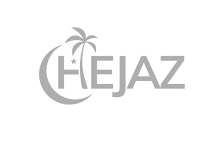Halal investing versus ethical investingBY HEJAZ FINANCIAL SERVICES | THURSDAY, 16 NOV 2023 5:00PMHalal investing is a process that aligns with Islamic principles and is sometimes called Shariah investing or Shariah-compliant investing. Ethical investing, also referred to ... Get articles like this delivered to your email - Sign up for the free weekly newsletter More Articles |
Latest News
ASIC releases new relief for reportable situations regime
ASIC has provided AFSLs new reliefs to help them manage the reportable situations regime, which includes extending the length of investigations reportable from 30 days to 60 days.
TA Associates invests in Viridian Financial Group
TA Associates announced it will make an undisclosed investment in Viridian Financial Group to help the latter accelerate its next phase of growth.
Shaw and Partners splashes $63m for New Zealand expansion
Shaw and Partners Financial Services, a subsidiary of EFG International, has acquired a 75% stake in Auckland-based Investment Services Group (ISG) for NZ$67.5 million ($62.5m).
4600 relevant providers yet to meet qualification standards: ASIC
More than 4600 relevant providers have yet to meet qualification standards, according to ASIC, and have only six months to meet the deadline.
Further Reading
Cover Story

Moving mountains
MAGDELINE JACOVIDES
FOUNDER & FINANCIAL PLANNER
MAZI WEALTH
FOUNDER & FINANCIAL PLANNER
MAZI WEALTH
On top of running a successful practice, Mazi Wealth founder Deline Jacovides is a fierce advocate for closing the superannuation gender gap and has built a highly popular social media presence that takes financial literacy to the next level. She tells Karren Vergara where her passion comes from and how she integrates it all with family life.























